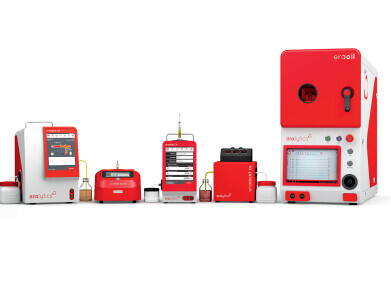Analytical Instrumentation
Is It Time to Replace Diesel Trains?
Jul 29 2019
According to new research from King’s College London and Edinburgh University, Great Britain's reliance on archaic diesel trains is exposing both passengers and railway staff to dangerously high levels of nitrogen dioxide at major stations. Trains are the lifeblood of the British transport sector, with rail passenger journeys in Great Britain hitting a record high of more than 1.7 billion in 2018/19. While trains play a pivotal role in getting Brits from A to B, the study warns that diesel locomotives are major contributors to air pollution.
King’s Cross and Waverley identified as "dirtiest" railway stations in UK
The study focused on King’s Cross in London and Waverley in Edinburgh, two of the busiest train stations in the UK. In just two weeks, both stations exceeded annual nitrogen dioxide (NO2) limits enforced by the EU, with the report warning that spending time inside King’s Cross or Waverley is the equivalent of "standing close to a very heavily trafficked road in a city centre."
Diesel trains are major contributors to railway air pollution, with the report identifying a "strong positive association" between the number of diesel locomotives pulling into stations and higher levels of NO2. The researchers put the high levels of pollution down to poor ventilation and a tendency to leave diesel trains idling within the confines of the station.
Diesel pollution linked to lung cancer
It's not the first time diesel trains have landed in the spotlight, with a recent study released by the World Health Organisation International Agency for Research on Cancer has a more profound impact on the development of lung cancer than originally thought. Environmental campaign group Friends of the Earth agrees, claiming air pollution, including diesel fumes, is linked to around 36,000 premature deaths every year.
Network Rail admits that while the UK is transitioning towards electric trains, pollution from diesel locomotives is still a serious health issue. "Rail is the greenest way of moving people and goods in large numbers, but there is still much more we can do as an industry," reads a statement released by the company. "We recognise diesel exhaust emissions as an emerging issue at some of our managed stations and have commissioned research to improve our understanding, and inform the actions we are already taking and intend to take in future."
Testing is an important part of making sure diesel fuels meet environmental regulations. For an introduction to the latest technologies being used to analyse the content of diesel fuels don’t miss 'Supercritical Fluid Chromatography: A powerful tool for hydrocarbon type analysis.'
Digital Edition
PIN 25.1 Feb/March
March 2024
In This Edition Safety - The technology behind the ION Science Tiger XT - Safety with ammonia and LOHCs as hydrogen carriers Analytical Instrumentation - Discussion on new tribology te...
View all digital editions
Events
Apr 28 2024 Montreal, Quebec, Canada
Apr 30 2024 Birmingham, UK
May 03 2024 Seoul, South Korea
May 05 2024 Seville, Spain
May 06 2024 Riyadh, Saudi Arabia


















